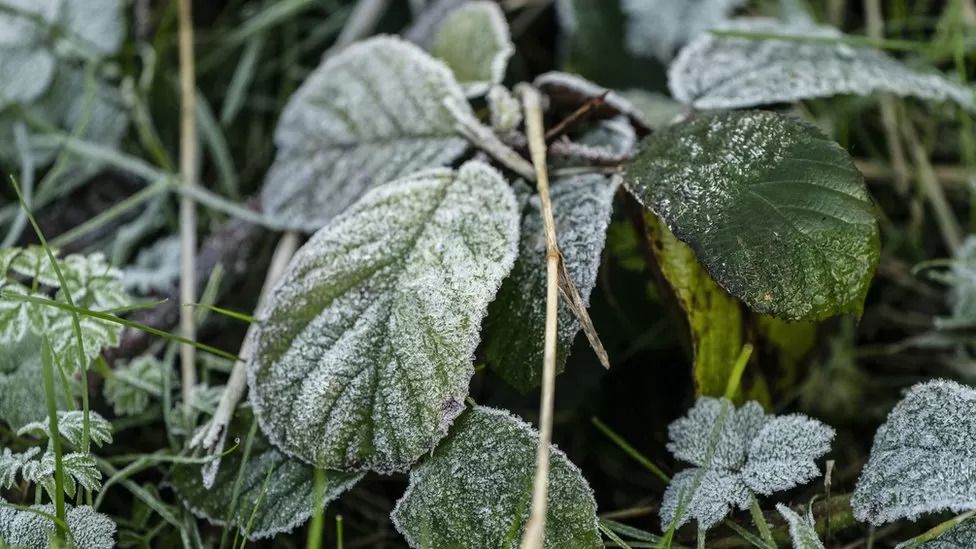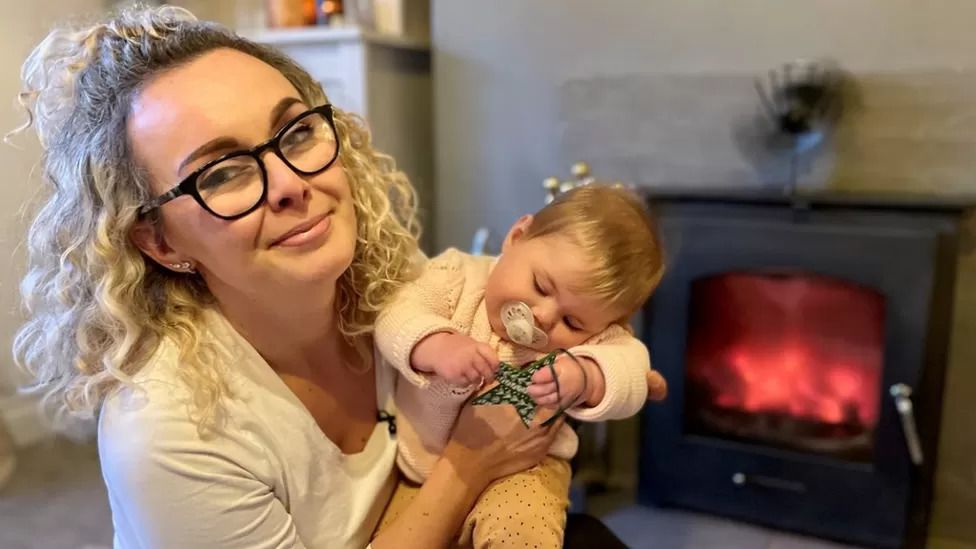
UK weather: Drivers warned of risks as Arctic blast begins
The RAC said people driving in frosty, icy conditions should prepare to keep warm in the event of breakdowns, which are expected to surge this week.
Temperatures as low as -10C (14F) are predicted overnight in isolated places, with -6C elsewhere.
A severe cold weather alert for England has now begun.
Issued by the UK Health Security Agency (UKHSA), the level three alert runs until 09:00 on Monday 12 December and signals conditions are likely to affect people's health.
The government has triggered £25 Cold Weather Payments for eligible people in more than 300 postcode areas.
These include parts of Cumbria, North East and North West England, West Yorkshire, Greater Manchester, Birmingham, Coventry and Staffordshire.
The Met Office said further severe weather warnings might be needed as the week progresses.
Current forecasts predict unseasonable temperatures, well below average for the time of year, in many places into next week.
There is a yellow weather warning for snow and ice in place until noon on Thursday for northern Scotland.
England's east coast also has a yellow warning, for ice, until 12:00 GMT - with temperatures set to drop as low as -3C (26.6F).
And a yellow weather warning also applies to Wales and most of Northern Ireland until 18:00.
Speaking on Wednesday, Met Office chief meteorologist Steve Willington said: "UK temperatures will fall with widespread overnight frosts, severe in places, and daytime temperatures only a few degrees above freezing.
"However, the cold air from the Arctic will also bring brighter conditions, with some dry, sunny spells, particularly away from the coast, and where winds are light, it could feel pleasant in the sunshine.
"Some patchy freezing fog is also likely. "
 As temperatures drop, overnight frosts are expected across the country
As temperatures drop, overnight frosts are expected across the countryHow can I keep my baby warm?
Babies and children under five are more at risk in cold weather.
One of the best ways to keep babies warm is to use layers, the NHS advises on its website.
At night it is better to adjust the temperature by using a number of lightweight blankets.
Sheffield City Council has declared a major incident as hundreds of properties wait for their gas supply to be restored after a water leak.
An emergency protocol in London has been activated to provide extra accommodation for rough sleepers.
Health officials have urged people to heat the rooms they use most, in response to concerns that mounting energy costs could prevent some people from switching on their heating.
In Natalie McNab's living room in County Durham, a coal fire glows cosily. But the rest of the house is chilly.
The mum-of-three explained that the central heating "just isn't going on". Instead, she is keeping one room warm for her family by day and turns on oil heaters for the kids overnight.
Her daughter has an ear infection she is struggling to shift. "I feel incredibly guilty as a mam, I'd love to put the heating on 24/7," she said. "We're trying as much as we can to mitigate the rises and penny pinch where we can, but it's only going to get worse," Natalie added.
She explained that, since both she and her husband are in work and not on benefits, they are not eligible for much of the extra support available.
 Natalie McNab says every penny that can be pinched has been, and now heating costs are beginning to bite
Natalie McNab says every penny that can be pinched has been, and now heating costs are beginning to bite
The UKHSA reiterated its long-standing advice for people who cannot heat every room - saying they should warm the living room during the day and bedrooms just before going to sleep, ideally to at least 18C.
Dr Agostinho Sousa of the UKHSA said: "Cold weather can have serious consequences for health, and older people and those with heart or lung conditions can be particularly at risk.
"If you have a pre-existing medical condition, you should heat your home to a temperature that is comfortable for you."
The cold weather alert for England also requires health care providers to activate special plans, such as arranging gritting services to allow access to critical services and to cover pedestrian hotspots.
But many local councils in England and Wales - who have collectively stockpiled 1.4 million tonnes of salt for this winter - said they were struggling to attract and retain gritter drivers.










